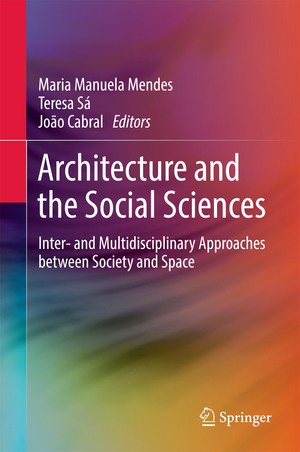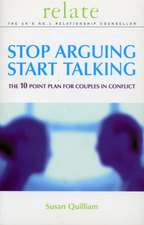Architecture and the Social Sciences: Inter- and Multidisciplinary Approaches between Society and Space
Editat de Maria Manuela Mendes, Teresa Sá, João Cabralen Limba Engleză Hardback – 19 apr 2017
| Toate formatele și edițiile | Preț | Express |
|---|---|---|
| Paperback (1) | 628.54 lei 39-44 zile | |
| Springer International Publishing – 25 iul 2018 | 628.54 lei 39-44 zile | |
| Hardback (1) | 733.33 lei 3-5 săpt. | |
| Springer International Publishing – 19 apr 2017 | 733.33 lei 3-5 săpt. |
Preț: 733.33 lei
Preț vechi: 894.31 lei
-18% Nou
Puncte Express: 1100
Preț estimativ în valută:
140.36€ • 145.98$ • 117.62£
140.36€ • 145.98$ • 117.62£
Carte disponibilă
Livrare economică 20 februarie-06 martie
Preluare comenzi: 021 569.72.76
Specificații
ISBN-13: 9783319534763
ISBN-10: 3319534769
Pagini: 311
Ilustrații: XXII, 233 p. 24 illus., 9 illus. in color.
Dimensiuni: 155 x 235 x 20 mm
Greutate: 0.61 kg
Ediția:1st ed. 2017
Editura: Springer International Publishing
Colecția Springer
Locul publicării:Cham, Switzerland
ISBN-10: 3319534769
Pagini: 311
Ilustrații: XXII, 233 p. 24 illus., 9 illus. in color.
Dimensiuni: 155 x 235 x 20 mm
Greutate: 0.61 kg
Ediția:1st ed. 2017
Editura: Springer International Publishing
Colecția Springer
Locul publicării:Cham, Switzerland
Cuprins
Part I Possible Dialogue between Social Sciences and Architecture.- Chapter 1. The Urbanology. Contemporary City and Plural Knowledge; João Seixas.- Chapter 2. Discussing Space and Scale in the Processes of Urban Design and Social Interaction; Jorge Macaísta Malheiros.- Chapter 3. Space and Society: Principles for a Programme of Sociological Research; Virgilio Borges Pereira.- Chapter 4. Interdisciplinary Relations betweem Social Sciences and Architecture: Tensions, Ambiguities and Complementarities; Maria Manuela Mendes and Teresa Sa.- Chapter 5. It It's Space It's Social; Fernando Bagulho and Tainha.- Chapter 6. Essay on Public Space. Harveyan Utopian thought and Social Justice; Marcio Moraes Valenca.- Chapter 7. Changing the Space of Community Care: Architecture , Social Ties and Mechanisms of De-Stigmatization; Tommaso Vitale.- Chapter 8. Art, Contemporanéité, Histoire; Marc Augé.- Part II. Architecture, Politics and social Change in Urban Territories; European Perspectives.- Chapter 9. Disclosing a Social Housing Area through 3D Virtual Model Art; Barbara Morovich.- Chapter 10. Architecture and the ''Right to the City'': The IBA Hamburg as a Case for Critical Urban Studies; Frank Eckardt.- Chapter 11. Visualizing the Urban: Tools for Representing Milan Change; Rossella Salerno.- Chapter 12. The ''Emigrants Houses'': Anthropology and Architecture on Material Culture; Filomena Silvano.- Chapter 13. Participatory Tools in the Qualification of Critical Urban Areas; Isabel Raposo, José Luis Crespo and Sílvia Jorge.- Chapter 14. Understanding the Informal City: A View from the Social Spaces of Talude Militar; Joana Pestana Lages.- Chapter 15. Reading the Postcolonial Territory: Tools for Perceiving Inheritance, Dwelling and Changes. The African Microstate of Sao Tome and Principe as Case-Study; Ana Silva Fernandes.
Notă biografică
Maria Manuela Mendes, sociologist, assistant Professor at Faculty of Architecture, University of Lisbon (FAUL), PhD in Social Sciences (Institute of Social Sciences University of Lisbon 2007), with a master degree (1997) and a degree in Sociology (at Oporto University, 1992). She is a fellow researcher in Centre for Research and Studies in Sociology Institute University of Lisbon (CIES-IUL); she’s also a member at the Centre for Research Architecture, Urban Planning and Design (CIAUD, FAUL) and at Institute of Sociology Faculty of Arts of Porto (ISFLUP). The main investigation issues are focused in issues related to ethnicity, immigration, Roma/Ciganos, city and diversity, social and spatial exclusion, relocation and disqualified territories.
Teresa Sá, sociologist, assistant professor at the Faculty of Architecture, University of Lisbon (FAUL). Phd in Sociology of Work (ISCTE-IUL, University Institute of Lisbon, 2009), with a master degreein Regionaland Urban Planning by the Technical University of Lisbon (1990), and a degree in Sociology (ISCTE-IUL). She is a researcher at CIAUD (Research Centre for Architecture, Urbanism and Design). The main investigation issues are focused in thematics like urban planning, urban sociology and space anthropology.
João Cabral, architect (Escola Superior de Belas Artes, Lisbon, 1976), Honours Diploma in Urban and Regional Development Planning (Architectural Association, London, 1984), PhD (Urban and Regional Studies, University of Sussex, U.K., 1992) is associate professor at the Faculty of Architecture (FA), University of Lisbon and researcher at CIAUD – Research Centre for Architecture, Urbanism and Design. Research interests and teaching activities range from urban planning, policies and methodologies to regional development, territorial governance and spatial planning systems. Has been involved in research projects on governance and policies inurban regions, comparing and evaluating spatial planning practices and urban regulation systems.
Textul de pe ultima copertă
This book contributes to current debates on the relationship between architecture and the social sciences, highlighting current interdisciplinary and transdisciplinary teaching as well as research and practice in architecture and urbanism. It also raises awareness about the complementarities and tensions between the spaces of the project, including the construction spaces and living space. It gives voice to recent projects and socio-territorial interventions, focusing on interdisciplinary and multidisciplinary approaches between society and space. Divided into two parts, the first part discusses the possible dialogue between social sciences and architecture, while the second part explores architecture, politics and social change in urban territories from a European perspective.
Caracteristici
Discusses the relationship between architecture and the social sciences Provides an interdisciplinary approach on the research and practice of architecture and urbanism Focuses on inter and multidisciplinary approaches to society and space Includes supplementary material: sn.pub/extras













